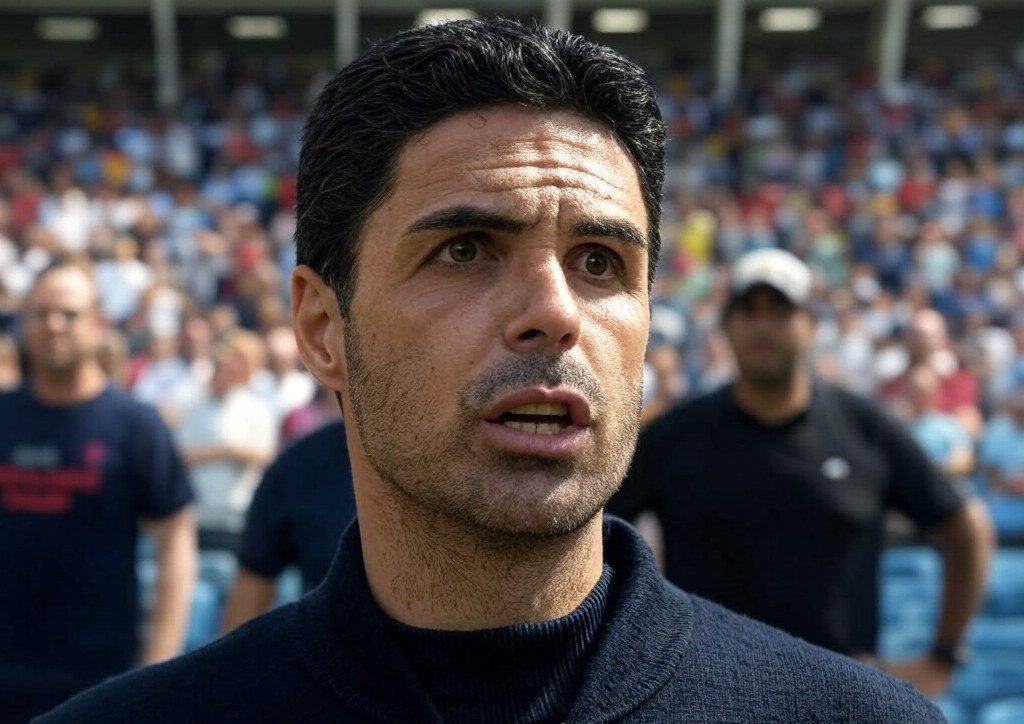Mikel Arteta Calls for Change: Addressing Hatred in Football Following Referee Abuse
In a passionate plea for reform within the world of football, Arsenal manager Mikel Arteta has emphasized the urgent need for the sport to combat the “hatred” that has recently manifested in the abuse directed towards officials. This statement comes in the wake of referee Michael Oliver receiving significant backlash after issuing a red card to Arsenal defender Myles Lewis-Skelly during a match against Wolverhampton Wanderers. The incident has sparked a broader conversation about the culture within football and the responsibilities of all involved in the game.
The Incident That Sparked Outrage
During a crucial match where Arsenal triumphed over Wolves, referee Michael Oliver made the contentious decision to send off young defender Myles Lewis-Skelly. This decision was upheld by Video Assistant Referee (VAR) Darren England after the player fouled Wolves defender Matt Doherty. The aftermath of this decision saw Oliver subjected to a torrent of abuse, highlighting the growing problem of hostility faced by referees in the sport.
Arteta’s Passionate Defense of Fairness
Mikel Arteta did not hold back in his condemnation of the abuse directed at referees, stating, “For everyone in football, you should not be permitted [to do that]. We don’t want it, we don’t need it and it certainly damages our sport. Let’s get it out.” His remarks underline the need for a collective effort to foster respect and kindness within the sport, irrespective of an individual’s role—be it player, coach, or referee.
The Importance of a Positive Environment
Arteta’s statement resonates with many in the football community who believe that the culture surrounding the sport must evolve. He remarked, “We have to really work harder to try to eradicate that part of the game that brings nothing but bad stuff, bad taste and it makes people’s lives more difficult.” This sentiment points to a pressing issue: the toxic atmosphere that can overshadow the beauty of the game.
Creating a Healthier Football Culture
Arteta further articulated that while discussions about the future of football often center around rules and regulations, the focus should also be on creating a more positive social environment. He stressed, “one that’s healthier, that’s nicer, in which we reward things that are not only winning, that when people make mistakes they have the chance to fix it.” This approach advocates for an atmosphere where mistakes are viewed as opportunities for growth rather than moments of vilification.
The Ripple Effect of Hatred
Arteta warned that the prevailing hatred and abuse in football affects everyone involved in the sport. “We shouldn’t be here with this hatred, these things we see, because they affect everyone and in the end, they take away the joy of this sport, the reason for it: which is enjoy ourselves, have good moments.” His comments shed light on the emotional toll that such negativity can have on players, referees, and fans alike.
Implementing Change: A Call to Action
Addressing the issue of abuse in football is not a simple task, but Arteta believes that proactive measures must be taken. “First of all, spending more time making the right decisions with the right people to get it out,” he suggested. This indicates that the sport must invest in better frameworks for dealing with abuse and ensuring that all stakeholders are held accountable for their actions.
The Role of Regulations and Policies
Arteta posed a poignant question regarding the current regulations in place: “And then putting, like the same we have put in laws and measures and regulation in that kind of thing, they do that, why we haven’t done it?” His inquiry highlights a perceived inconsistency in how the sport addresses various issues, particularly when it comes to player and referee treatment.
The Need for Collective Responsibility
Arteta’s advocacy for change extends beyond just the players and referees; it calls for a collective responsibility among everyone involved in football. He stated, “We are all talking about it, but no one seems to be moving strongly enough and bringing people with them to get that out of the game, because it’s just unacceptable.” This quote underscores the urgency for a unified front to combat the culture of abuse and hatred that has taken hold in some corners of the sport.
Conclusion: A Vision for a Better Future in Football
Mikel Arteta’s passionate address regarding the abuse of referees reveals a critical need for change within the football community. By advocating for a healthier environment, promoting respect, and implementing stronger regulations, the sport can begin to heal from the toxicity that has plagued it. The time has come for football to prioritize the well-being of all its participants, ensuring that the joy and passion that drive the game are preserved for future generations. As Arteta eloquently stated, “Let’s get it out, let’s kick it out.” The challenge lies in making this a reality.





